Lindaman begins testimony after state rests its case
By Bob Steenson, bsteenson@charlescitypress.com
The prosecution rested its case Friday afternoon and Douglas Lindaman began presenting his defense on a charge of sexual abuse in the third degree.
As part of that defense, Lindaman presented one witness and then began testifying to the jury on his own behalf. Part of that testimony will be reading to the jury all or part of a 122-page book he wrote, titled “Iowa’s Tuskegee Experiment, Perpetuating Institutionalized Sexual Exploitation.”
The day started Friday in Cerro Gordo County District Court in Mason City with Lindaman cross-examining the final state’s witness, the alleged victim’s mother.
Lindaman’s defense is that when he touched the genitals of a then-17-year-old boy on Lindaman’s farm in 2011, the touch was not sexual, but therapeutic, because he was trying to help the boy through what Lindaman says he had identified as evidence of a sexual injury or trauma in the teen.
Lindaman has a law degree and previously had a law license. He is representing himself in this case, with a Mason City attorney, William Morrison, acting as standby counsel and advising him as needed.
Under questioning by Lindaman, the alleged victim’s mother said she had heard from her son and his brother that something had happened between the boy and Lindaman, but she didn’t know the specifics.
They also discussed an agreement that the family signed in return for $3,000 from Lindaman. The agreement said that the emotional and physical contact between Lindaman and the teen was not intended to arouse or satisfy the sexual desires of any party, and there was no action engaged in which was done by force or against the will of another party.
The woman said “yes” when asked by Lindaman if she had signed it, but later said under questioning by Floyd County Attorney Rachel Ginbey that at the time she signed it she had not known the specifics of what Lindaman was alleged to have done.
In earlier testimony, the mother said she thought her son was upset because Lindaman was rubbing an oil on the teen to help with his acne scars.
The next witness for the prosecution was Lt. Brian Tiedemann with the Floyd County Sheriff’s Office. Tiedeman was a deputy at the time of the incident and he was the initial investigator after the incident was reported to the Floyd County attorney.
Tiedeman did the initial interviews of the alleged victim and of his brother, who both worked for Lindman on Lindaman’s farm near Charles City. He said he made his report to the county attorney, who at that time was Normand Klemesrud, and Klemesrud decided to call in the Iowa Division of Criminal Investigation for further investigation.
Under cross-examination by Lindaman, Tiedeman said he had not heard of several sexual terms that Lindaman listed and agreed that “there are a lot of areas of sexuality that you are not trained in or understand.”
The state’s final witness was Katie Strub, a forensic interviewer and the supervisor at the Allen Child Protection Center in Waterloo.
Strub gave details under questioning by Ginbey about how forensic interviews are done, how victims of sexual abuse sometimes act, and details about how sexual perpetrators “groom” their victims to make them more susceptible.
She defined grooming as “a process of establishing trust” with a child’s parents or caregivers and with the child so that the person can gain access to the child and begin manipulating him or her with the hope of eventually sexually assaulting the child.
Strub said it’s a desensitization process to test limits to see if a child will disclose the contact to others and to see if innocent contact can be escalated to more intimate contact.
It can include, she said, offering gifts or attention to the intended victim and to the victim’s family so the perpetrator can continue to have access to the intended victim.
Under cross-examination, Strub agreed with Lindaman that she is not a certified sexual therapist or a therapist, and that she was not familiar with some of a list of sexual terms Lindaman asked about, although she was familiar with others on the list.
She also agreed that she had not interviewed any of the people involved in this case and was not making any comments about the specifics of this incident.
The state rested its case after the questioning of Strub ended.
Lindaman then made a motion for a directed verdict, asking the judge to rule that the state had not presented evidence sufficient to require the jury to decide the case. Such motions are routine in criminal cases after the prosecution presents its side.
Lindaman argued that the state had not proved that a sexual act had taken place and that the contact was not nonsexual legitimate contact.
Judge Gregg Rosenbladt ruled that there had been sufficient evidence presented for the case to continue.
Lindaman’s first witness was the brother of the alleged victim.
Lindaman asked him about the timeline for when Lindaman helped the brothers purchase dirt bike motorcycles, about the document that family members has signed in return for $3,000, and about discussions Lindaman had had with the boys.
After that witness was dismissed, Lindaman took the witness stand himself.
Judge Rosenbladt told the jurors that previously Lindaman had been acting as an attorney, and his words were not evidence. Now Lindaman would be acting as a witness, and his words were evidence.
Lindaman said he intended to read his book, “Iowa’s Tuskegee Experiment,” to the jury, and had copies of the 122-typed-page document to hand out to jury members to read along with him.
The book is about sexual discrimination, and argues that Iowa’s sex offender treatment program used in prisons and traditional psychological models are inadequate and do more harm than good when dealing with other than heterosexual sexual identities.
“This treatise has been written for judges, lawyers and laymen,” the book’s introduction says. “It will outline new tools and understanding in the treatment of sexually offending behavior.
“As the reader progresses through the treatise,” the book says, “he or she will slowly become a Sexual Detective concerning sexually deviant behavior and its causes.”
Lindaman began his testimony by telling the jurors about himself. He talked about his family, his education, his work history and how for the past 20 or so years he had been helping run the family farm, a cattle and grain operation.
He told the story of when he was 4 and his family noticed he was limping. It was determined he needed a chiropractic adjustment, he said, but he wouldn’t let chiropractors touch him.
His grandfather, who was a research scientist, looked into the matter, figured out what adjustment was needed, then did what was required while playing with the 4-year-old Lindaman on the floor.
Lindaman presented the story as an example of when a trusted relative or friend can sometimes provide needed help that a person won’t accept from a stranger.
He also talked about his efforts to work against discrimination on areas of sexual orientation. Lindaman, who has identified himself as gay, said he was vilified years ago for arguing for same-sex marriage, but those arguments have turned out to be prophetic.
After testifying for about 40 minutes the court took a break. With the jury out of the courtroom, Ginbey objected to Lindaman introducing his book and reading it in front of the jury.
She argued that much of the detail in Lindaman’s book will be identifiable as talking about Lindaman himself, and includes details that the court has ordered cannot be introduced.
This is the third time Lindaman is being tried on this charge. The first trial, in 2016, ended in a conviction that was later overturned by the Iowa Supreme Court on a legal issue. The second trial, in February, ended in a mistrial because two of the state’s witnesses mentioned the word “prison” in connection with Lindaman.
The judge has ruled that Lindaman’s previous criminal history cannot be mentioned. That includes his conviction in 1988 for two felony counts of lascivious acts with a child that resulted in two years in prison and having his law license permanently revoked.
Judge Rosenbladt ruled that Lindaman will need to be careful to not included items that have been ruled “in limine,” or off limits, and that jurors will be advised to read along only with the parts Lindaman is reading and not to skip ahead, or to not read at all and just listen to Lindaman.
When the jury returned, Lindaman told them that the people named in the book are composites of many different people, and the names used do not refer to anyone in particular.
The person talked about most in the book is named Kent. Kent is a gay man, a former attorney and a current farmer.
Lindaman’s full name is Douglas Kent Lindaman.
Lindaman read the first two chapters of the book Friday afternoon, getting to page 19, before the court recessed for the day.
At the rate Lindaman is reading, if he reads the entire book it will take about six hours.
The trial resumes Monday morning in Cerro Gordo County District Court. Judge Rosenbladt advised the jurors that they may begin deliberations Monday afternoon or Tuesday morning.

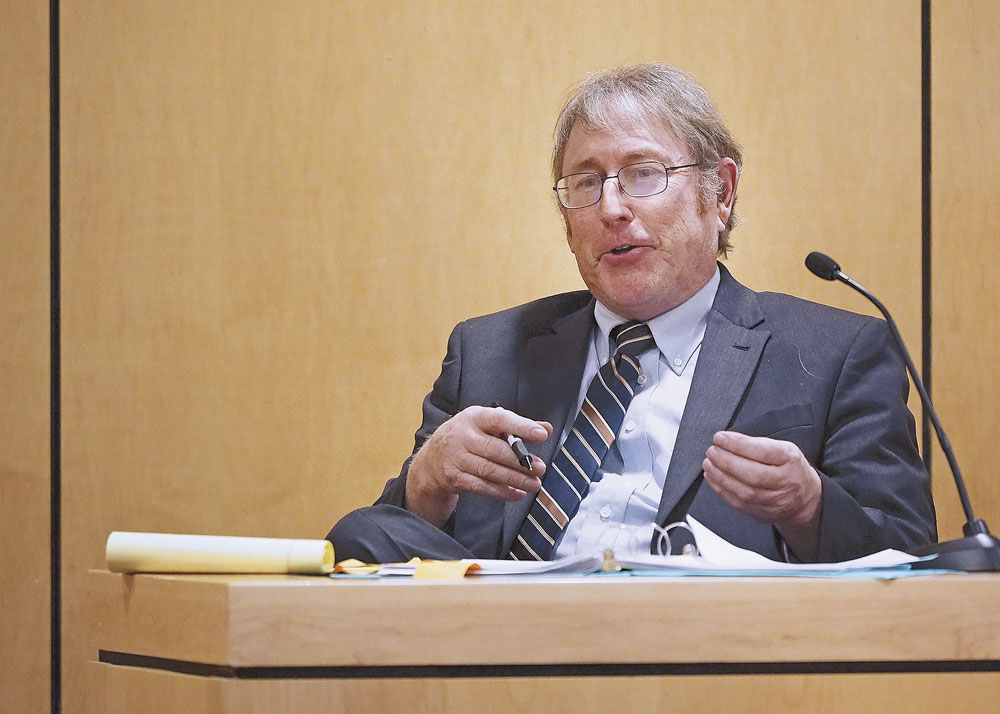
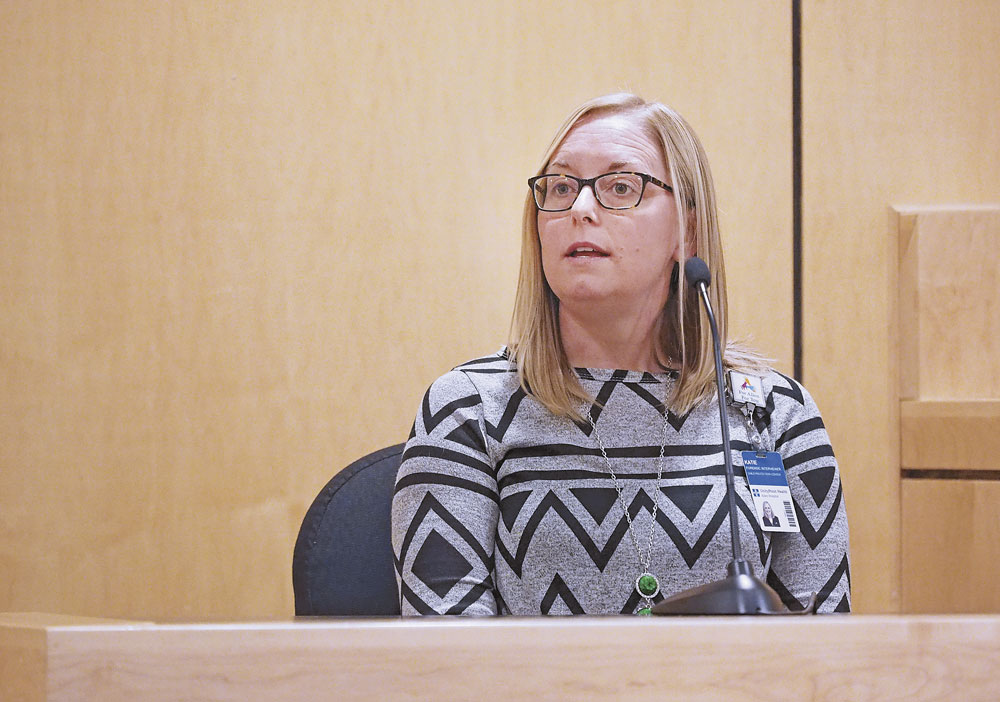
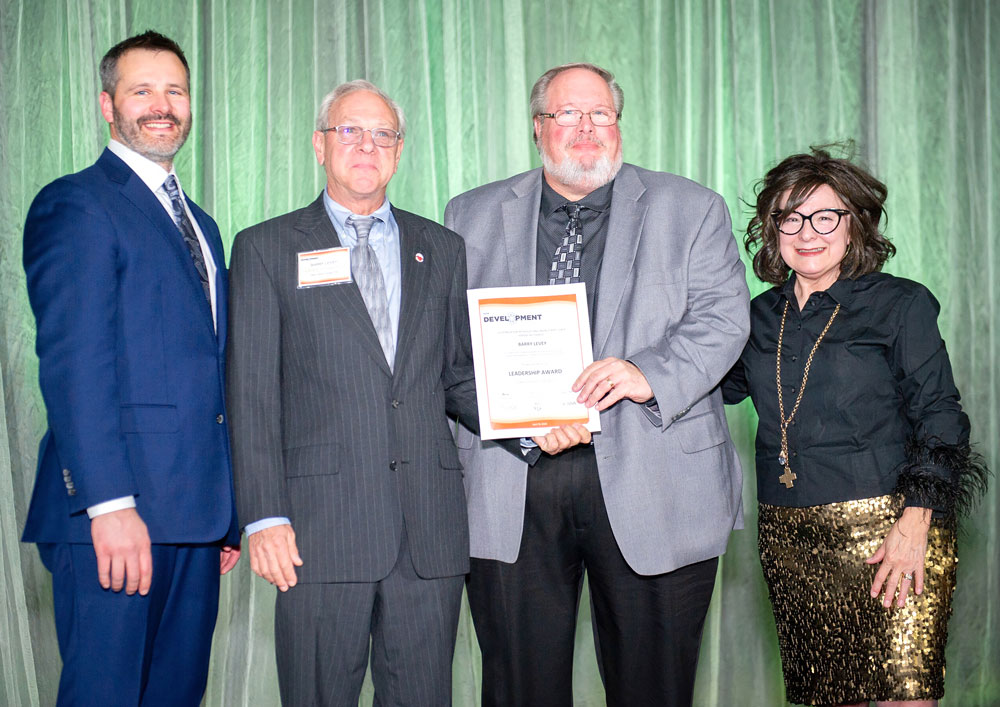


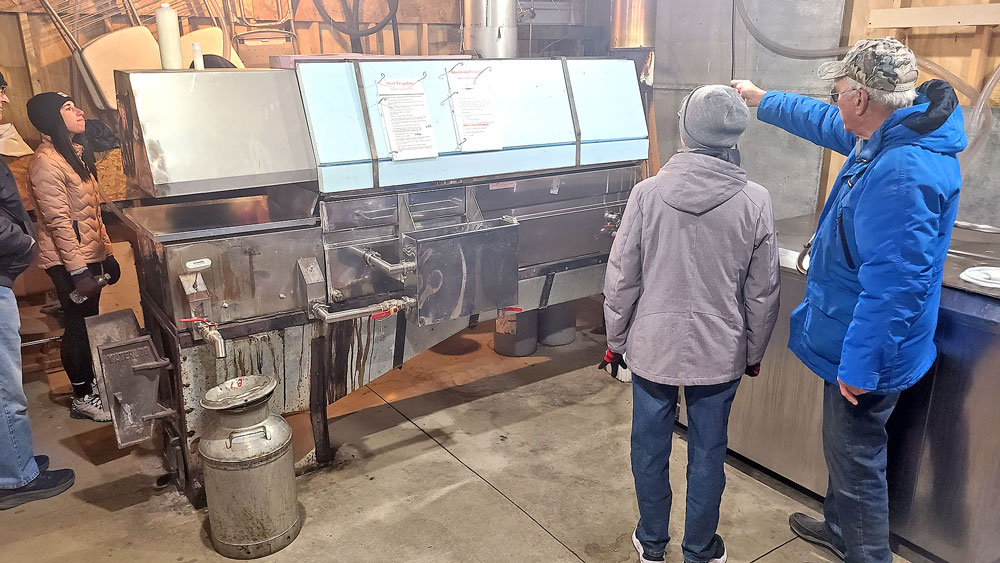

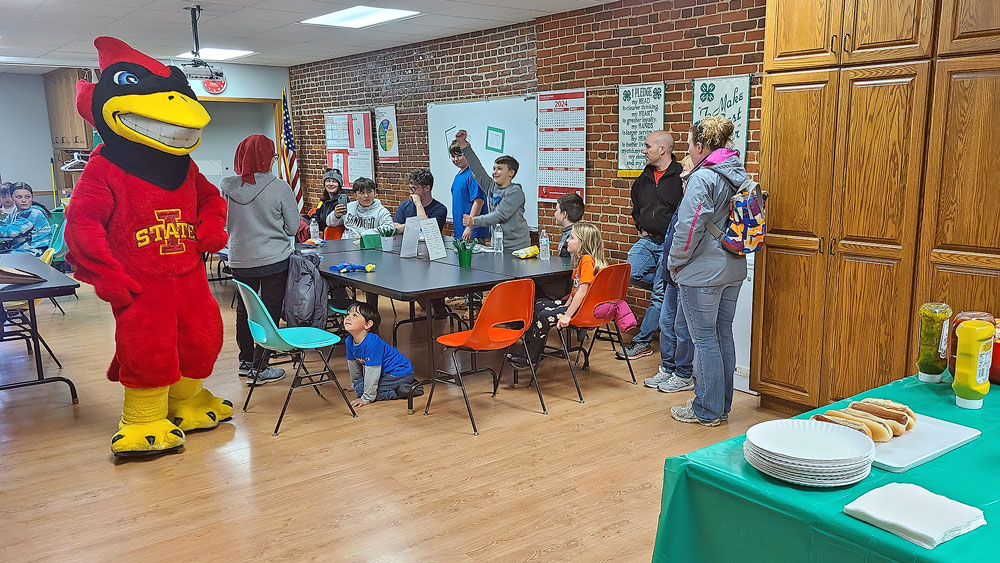


Social Share